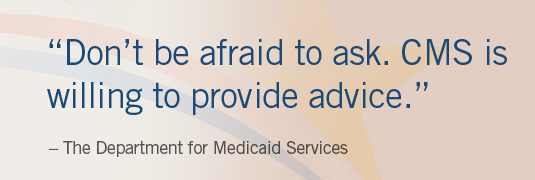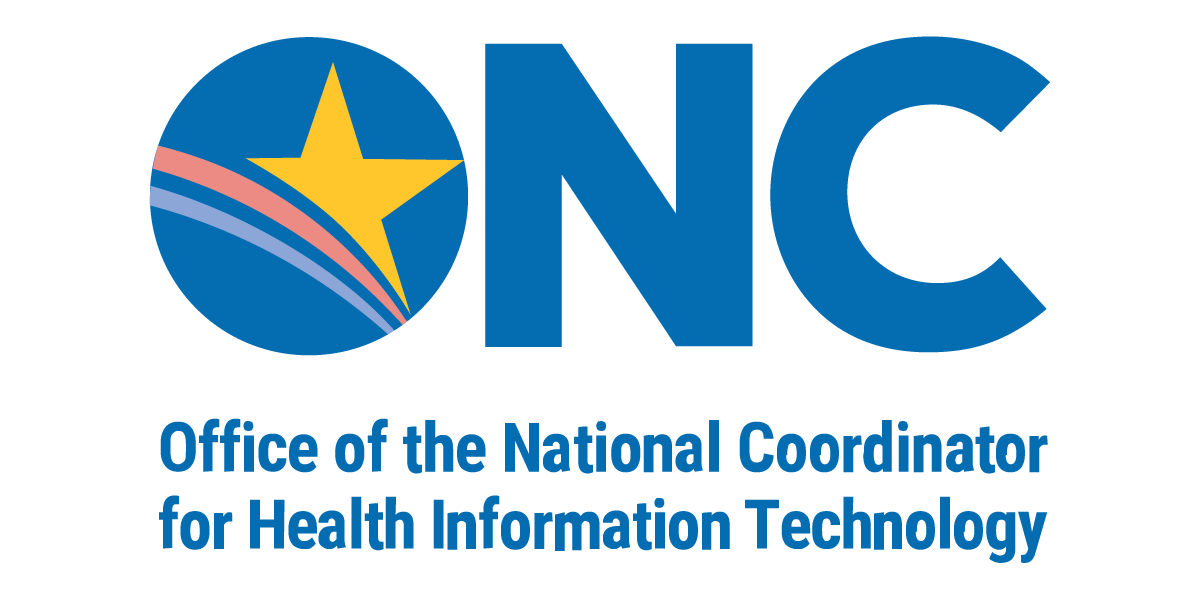
Securing 90/10 Match Funding
The Department for Medicaid Services applied for the 90/10 funds shortly after the opportunity was announced by CMS in September of 2009. As Kentucky has a history of promoting health IT initiatives, and the Department had already been working closely with the state health IT coordinator, the Kentucky REC, and the Kentucky health information exchange entity, KHIE, they felt strongly about securing these additional funds for health IT activities. They started by talking with their counterparts at CMS to gain a clear understanding of what the funds can and cannot be used for, and what a successful application would look like. The Department knew they wanted to use some funds to allow the REC to provide services to specialists, so they spoke with CMS specifically about this option. Following these conversations, the Department worked with the REC to create a detailed payment schedule that was included in their application documents, namely their State Medicaid Health Information Technology Plan (SMHP). Under this draft payment schedule, that was later implemented, the Department pays the REC a total of $5,000 for each specialist who achieves meaningful use (this is consistent with the amount the REC receives from ONC for each PPCP who achieves meaningful use). Similar to the federal program supporting PPCPs, the payment is broken down into three milestones but with some variation. The first payment milestone is reached when a specialist signs up with the Kentucky REC and registers to attest for meaningful use. The second milestone is reached once a specialist successfully completes the Adopt, Implement, Upgrade (AIU) process in the Kentucky Medicaid system as defined by the incentive program, which requires that the specialist at least purchase a Certified EHR. The third milestone is reached when a specialist achieves meaningful use.
In their application, the Department clearly delineated how they intended to use the 90/10 funds and the rationale for these uses. Although CMS could not ensure that all activities would be funded, they encouraged the Department to include all possible uses of the funds in their application. The Department was not successful in securing funds for all of the activities they applied for, namely funding for the local public health department and behavioral health initiatives; however, they were successful in securing funds to allow the REC to provide services to specialists. The Department credits their success in this area to working collaboratively with the REC and other partners in Kentucky, and to working closely with CMS to gain a clear understanding of their requirements.
“The specialists we work with are the ones who benefit the most from the additional assistance.” -Kentucky REC
Innovative Uses of Funding
Once the Department secured the 90/10 match funds they worked with the Kentucky REC to develop a contract to implement the payment schedule, and the REC then turned its attention to engaging specialists. Specialists qualifying for REC services must be eligible providers (EPs) under the Medicaid EHR incentive program, meaning, amongst other factors, that at least 30% of their patient populations are Medicaid beneficiaries. Given this requirement, these specialists are likely to work in rural and disadvantaged areas, making the REC’s services all that more beneficial.
Currently, the REC has worked primarily with dentists, followed by optometrists and oncologists. Of note, optometrists were not included in CMS’ original list of EPss, however the Department was able to amend the definition of an optometrist in their state plan. This amendment was approved by CMS and has enabled optometrists in Kentucky to be eligible for the Medicaid EHR incentive payments.
Challenges and Opportunities
Although the REC and the Department were successful in securing and using the 90/10 match funds, they did have to overcome some challenges.
One of the first challenges they encountered was ensuring the contract mechanism between the REC and the Department was appropriate. The two parties worked together to reach a mutually beneficial contract, however it took them approximately five months to draft the contract and receive approval from the state cabinet. They suggest states wishing to follow their model should start this process early. Another issue encountered early on was securing the additional 10% funding from the state (to add to the 90% funding received from CMS). Kentucky was lucky in that health IT is a priority in the state; therefore, the cabinet was able to come up with the funds fairly easily. The Department is aware that securing state funding in future years may be more difficult. In other states where this may be more of a challenge, Medicaid agencies are looking to foundations and other sources for additional money. CMS is willing to review plans to secure the additional 10% from outside resources, but this can be a time consuming process and states should start working to secure these funds early.
The REC also encountered challenges associated with serving the specialist providers. The REC has had to work with the specialists and the Department to determine appropriate exclusions for various specialists groups. Further, working with specialists’ vendors is very different than working with primary care providers’ vendors. Specialists typically have a limited choice of certified EHR vendors and many of these products are homegrown and produced by small vendor groups. Another challenge is that many specialists who see Medicaid beneficiaries do not quite meet the 30% threshold, excluding the REC from working with them. While this is also a hurdle for primary care providers, the problem has been more prevalent for specialists.
The Department and the Kentucky REC have built a solid collaboration and they hope their experience can inform the efforts of other states to successfully expand their health IT initiatives.
The Stakeholders
Kentucky Regional Extension Center
The Kentucky Regional Extension Center (Kentucky REC), housed at the University of Kentucky, provides services to healthcare providers to assist them in the adoption of Electronic Health Records (EHRs), with the ultimate goal of helping providers achieve meaningful use. The Office of the National Coordinator for Health IT (ONC) originally charged the RECs around the country with providing services to priority primary care providers (PPCPs), Federally Qualified Health Centers (FQHCs)/Rural Health Centers (RHCs), and critical access hospitals. The Kentucky REC has expanded this original focus by using funds from the Kentucky Cabinet for Health and Family Services Department for Medicaid Services (the Department) to provide services to specialists in the state. Since its inception in July 2010, the Kentucky REC has:
- Helped bring to Kentucky approximately $40,000,000 in federal dollars
- Assisted more than 2,300 individual providers across Kentucky, including primary care and specialists
- Supported more than 500 provider locations across Kentucky
- Assisted more than 95% of the FQHCs and RHCs within Kentucky
- Helped more than 90% of Kentucky's critical access & rural hospitals
- Partnered with neighboring RECs to support provider settings in border communities to better serve their patient population.
Kentucky Cabinet for Health and Family Services Department for Medicaid Services
The Department for Medicaid Services administers the Medicaid EHR incentives program, which was authorized under the Health Information Technology for Economic and Clinical Health (HITECH) Act. The Department works closely with the Kentucky REC to ensure all REC providers are able to attest to meaningful use and receive Medicaid EHR incentive funds. The HITECH Act also authorized the use of Medicaid enhanced federal medical assistance percentages (FMAP) at 90/10 matching to support health IT initiatives. In states that secure this funding, the Centers for Medicare and Medicaid Services (CMS) will pay 90% of the cost for various administrative activities related to health IT, with the state responsible for the remaining 10%. The Department was successful in securing the 90/10 match funds, and is using this money to support numerous health IT initiatives statewide, including funding the Kentucky REC to provide support services to specialists.


